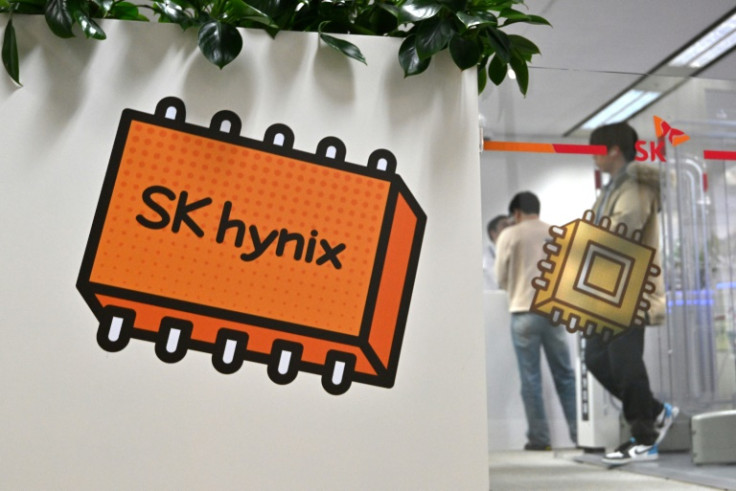S. Korea Govt Plans $4.9 Bn More Help For Semiconductors As US Tariff Risk Bites

South Korea on Tuesday announced plans to invest an additional $4.9 billion in the country's semiconductor industry, citing "growing uncertainty" over US tariffs.
"An aggressive fiscal investment plan has been devised to help local firms navigate mounting challenges in the global semiconductor race," the finance ministry said in a press release, adding the country's chip support package would be increased by $4.9 billion.
South Korea is a major exporter to the United States and its powerhouse semiconductor and auto industries would suffer greatly under President Donald Trump's looming 25 percent tariffs.
South Korea is home to the world's largest memory chip maker Samsung, and largest memory chip supplier SK Hynix.
South Korea's finance ministry said "growing uncertainty" following rounds of US tariff threats had left the powerful industry clamouring for government support.
"To foster a dynamic, private sector-led ecosystem for semiconductor innovation and growth, the government will increase its investment in the sector from 26 trillion won ($18.2 billion) to 33 trillion won ($23.1 billion)," said the ministry.
On his so-called April 2 "Liberation Day," Trump announced a slew of tariffs on trading partners across the world, including a 25-percent hit on South Korean goods, before backtracking and suspending their implementation for 90 days.
Even so, "duties targeting specific sectors such as semiconductors and pharmaceuticals, remain on the horizon," finance minister Choi Sang-mok said during a meeting.
"This grace period offers a crucial window to strengthen the competitiveness of South Korean companies amid intensifying global trade tensions," he added.
"The government plans to expand support for the semiconductor industry, allocating 33 trillion won ($23.1 billion), with over 4 trillion won in fiscal spending set to be injected through 2026," he said.
The package includes funding for infrastucture development, including underground transmission lines at semiconductor clusters which are currently being built.
"The government will boldly support investment by semiconductor companies," said Choi. He added that the package includes securing talent for the industry.
The investment is part of a large revised supplementary budget proposal of 12 trillion won ($8.4 billion), and is required to be passed by the National Assembly.
The tariffs announcement has rocked global stock markets, with investors uncertain over whether they are a negotiating tactic or permanent US position.
Trump has insisted he will not back down until he has reduced or even wiped out US trade deficits -- while simultaneously signalling that he is ready to negotiate with countries around the world.
In 2024, the US trade deficit with South Korea amounted to just over $66 billion in goods.
Last week the government in Seoul unveiled a $2 billion emergency support package to help carmakers weather the storm.
South Korea's auto-related exports to the United States totaled $42.9 billion last year, according to officials.
Last week, Trump spoke to South Korean Prime Minister Han Duck-soo, who is acting as president since former leader Yoon Suk Yeol was removed from office for attempting to subvert civilian rule.
US Treasury Secretary Scott Bessent said Monday that trade talks with South Korea would take place next week.
© Copyright AFP 2024. All rights reserved.




















